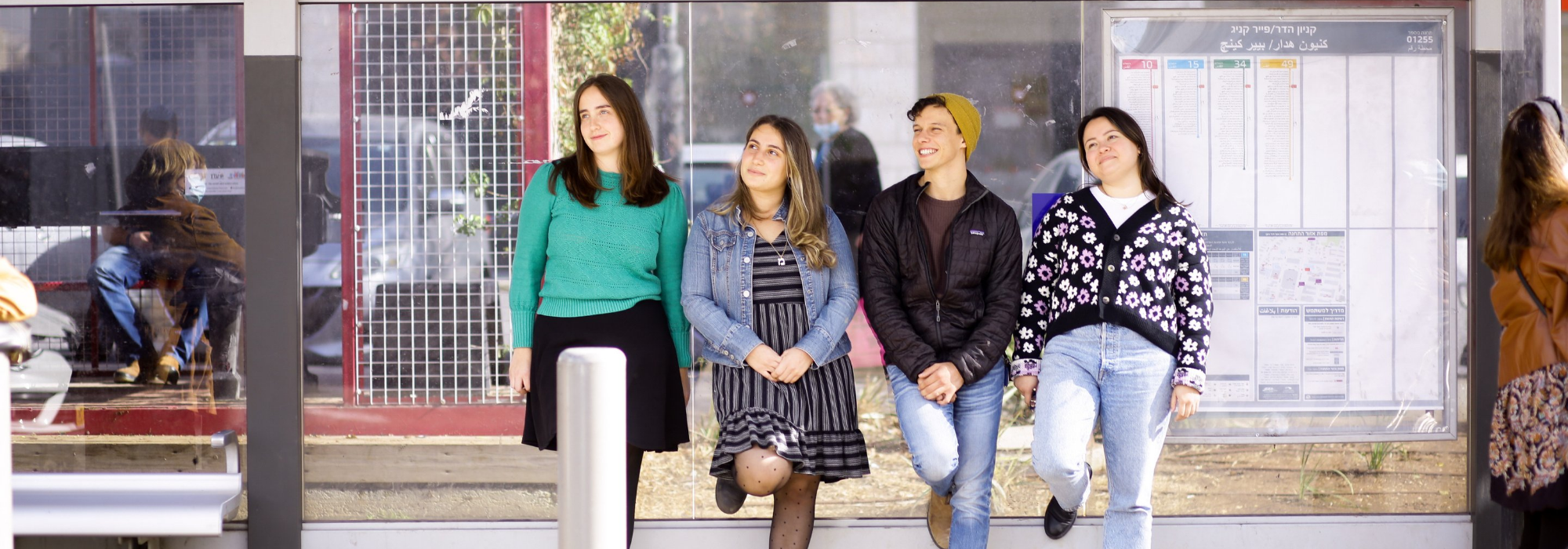
Take me to the Year/Semester Page
In an increasingly polarized world, Pardes continues to celebrate and honor a multiplicity of Jewish voices, reinforcing our commitment to nurturing our collective tradition of healthy, respectful constructive conflict, mahloklet l’shem shamayim (arguments for the sake of Heaven), around differences of outlook, opinion and practice.
Engaging mindfully with different voices pushes us to grow with integrity and build community with compassion and understanding. Just what the Jewish people – and the world at large – needs most right now.
As a non-denominational learning community, Pardes supports the spiritual, intellectual, and personal growth of students with a wide range of Jewish affiliations, expressions, and commitments, across and beyond the major Movements.
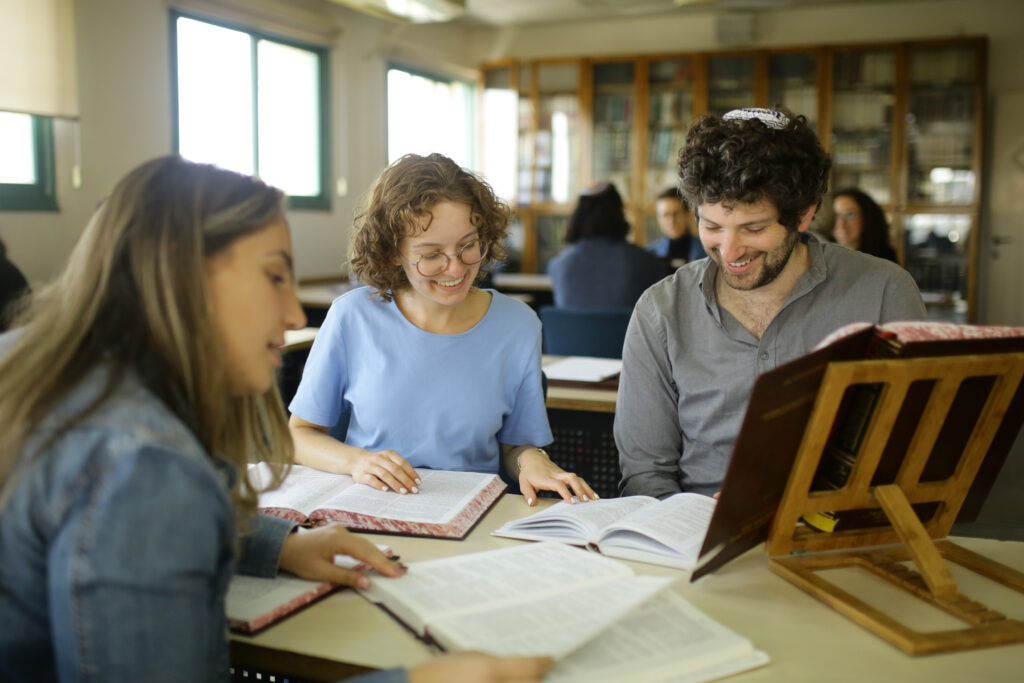
As someone raised with a Modern Orthodox lifestyle and education, including a post-high school year of Midrasha, Pardes has been a wonderful place to deepen my Jewish learning, explore my Orthodoxy and re-affirm my commitments. The faculty are a source of halakhic and hashkafic guidance. My classes are traditional in the ways that I wanted (I take mostly Gemara and Halakha) while also being intellectually open and compatible with my post-university modes of thought. Learning how other students practice and what they believe has been a stimulating opportunity to reflect on and recommit to my own religious practices and beliefs.
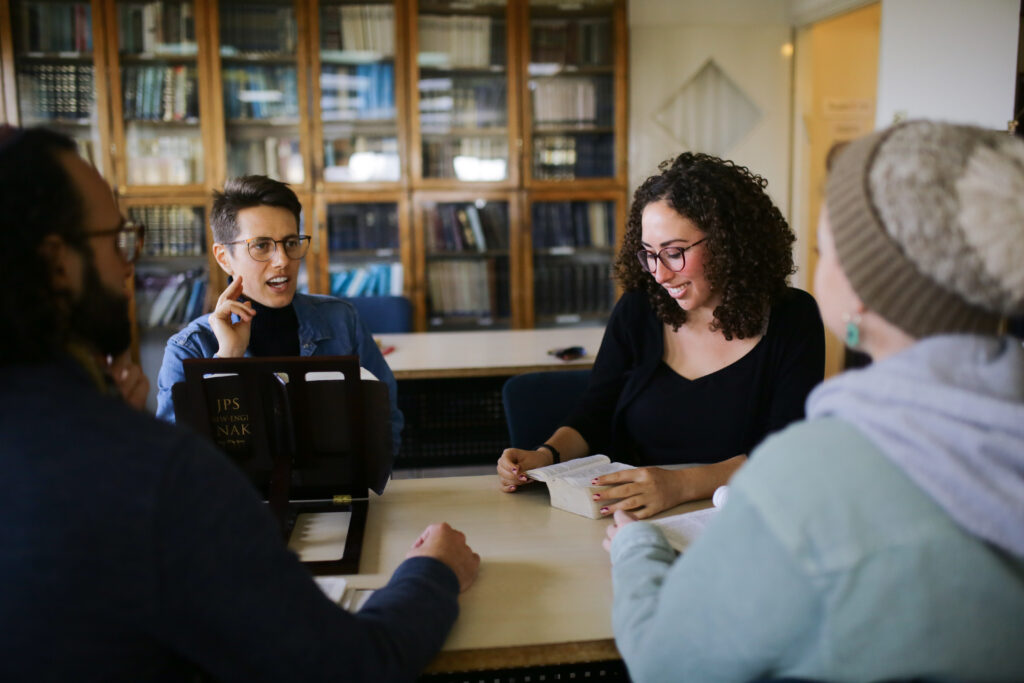
I arrived at Pardes identifying as non-denominational, a default choice made because I didn’t understand what distinguished each denomination. Through conversations with other students, especially those in rabbinical studies, and classes on Jewish thought, I learned about the development and convictions of different denominations. Some resonate with me more than others, and of course, I am still developing my own beliefs and values. When I leave Pardes I may choose affiliation. Or, I may choose to remain unaffiliated. Either way, I will be making an active choice because of my experience here.
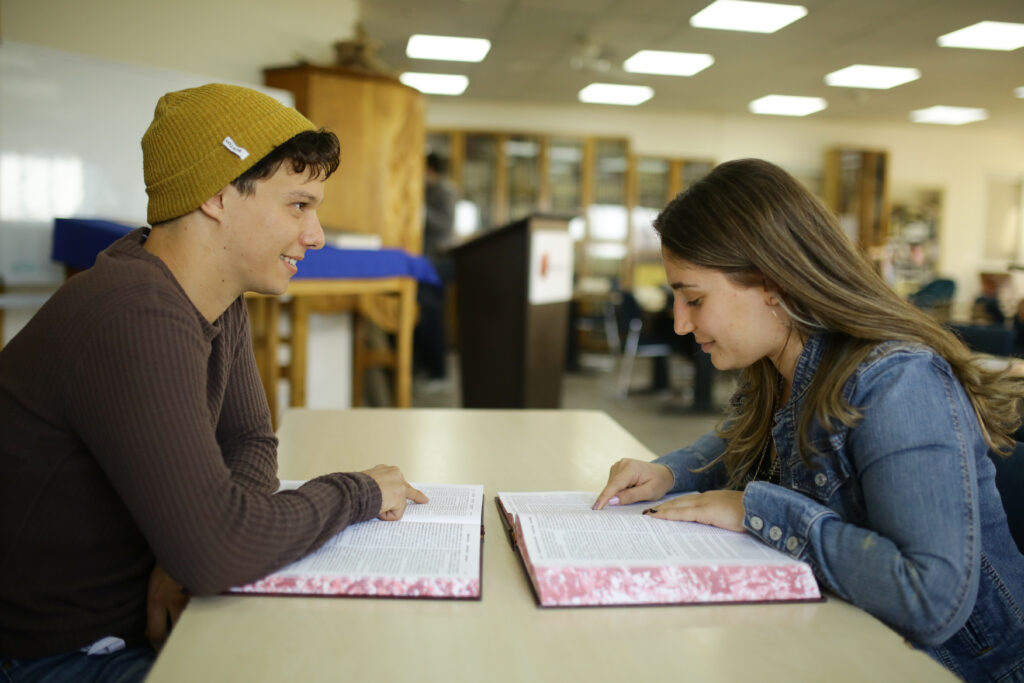
I grew up immersed in Northern Californian egalitarian Judaism and it was my years attending pluralistic day schools and my summers spent at the Union for Reform Judaism’s Camp Newman where I discovered the freedom to explore and play with our inherited tradition on my own terms. The choice to come study at Pardes was based on the desire to root my non-halakhic practice in the wisdom of our people, whereby I could begin building the skills to inform the decisions around how I engage with Jewish culture and practice. I hope to foster learning for its own sake as a practice unto itself.
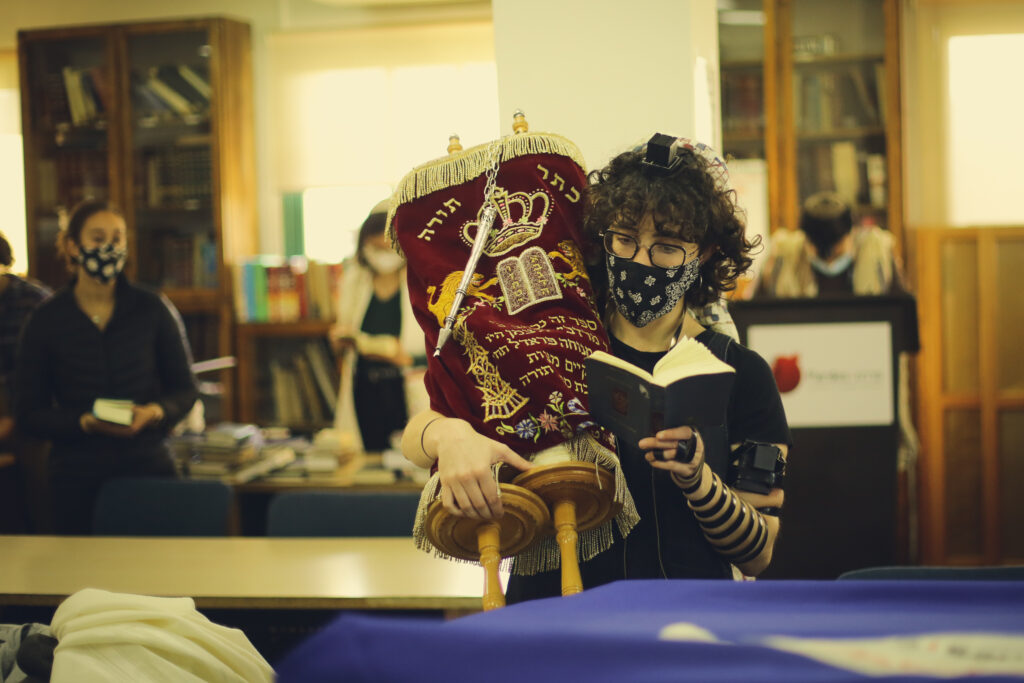
I’m a halakhic egalitarian Jew, learning in the Pardes kollel for my second year. Given Pardes’s non-denominational character, many people come here looking to explore and adapt their Jewish identity and practices by being exposed to students and teachers from a wide range of backgrounds. Others, like myself, arrive feeling fairly settled in how they identify, and come to Pardes seeking Torah that is challenging and nourishing. Over the past two years, I’ve served as gabbai for Pardes’s egalitarian minyan, which meets most days for shacharit and every day for mincha; as a largely student-run project, the minyan is an excellent place for students to get regular practice leading tefillah, or even learn to lead for the first time. I’ve been able to daven and practice in a way that feels consistent with my hashkafa, while learning Torah intensively from teachers whose practices differ from my own.
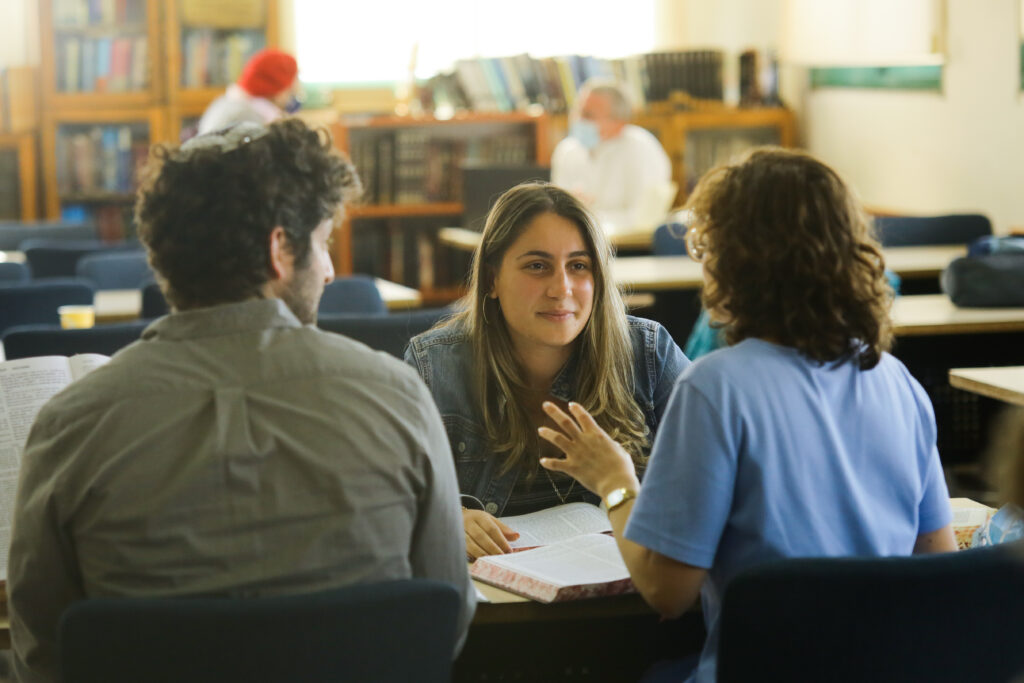
My Jewish journey really began when I came to Israel 4 years ago, and started to connect with my Israeli family. They made aliya from Morocco in the 50’s to fulfill a Jewish, religious and Zionist dream. I grew up so removed from that in LA, but I knew it was at the core of my family’s story. I was very active in my Reform synagogue and Hebrew school, and it really informed my identity, but there was a disconnect between that and my family’s Moroccan traditions. Only when I came to Israel and made aliya did I get the chance to merge these identities together. Pardes gave me the tools to understand my family’s story in a much deeper way – I can open my grandfathers’ sefarim (Jewish books) from the late 1800s from Morocco and understand what the texts say, and why a calling spoke to them so deeply, making them uproot their lives and start anew here.
Out of 30 grandchildren, I am the only one who maintains my grandfathers’ religious Mizrachi traditions, shaping my masorti (traditional) practice. I love that now, I can learn Gemara with my grandmother, a privilege that she was never afforded in her own childhood. I love that Pardes has given me the tools to reclaim a tradition that is mine, but which wasn’t open to me until I came here.
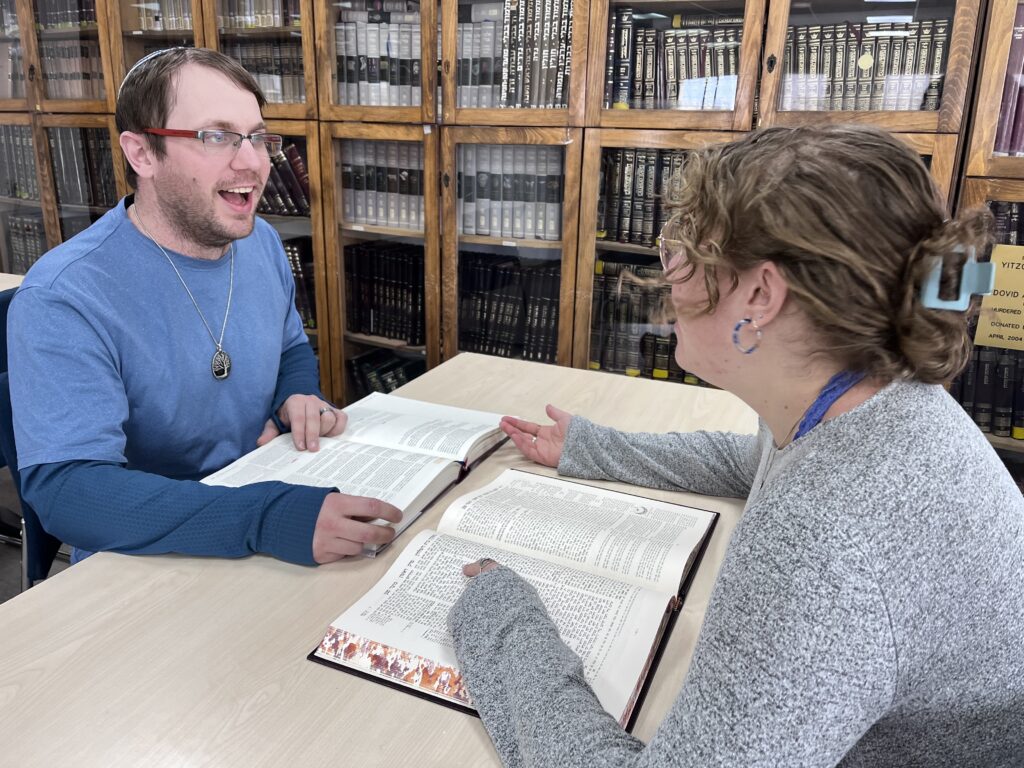
For the first 28 years of my life, I was not Jewish – I wasn’t really anything as far as religion was concerned. Eventually, I found my spiritual home in a Reform shul. As Reform Judaism stresses the importance of pluralism and individual autonomy, I see it as my responsibility to learn all that I can – from as many different people and viewpoints as I can – and make my own choices from there. As a Jew-by-Choice, I felt like I had missed out on decades of Jewish learning. Studying at Pardes with such a diverse group of Jewish souls has allowed me to ‘own’ my unique life experiences, and taught me how to make learning a meaningful part of my Jewish future.
Start date: ASAP
We are seeking a charismatic, creative, and action-oriented Assistant Director of Alumni Engagement and Activation to lead this initiative. This individual will play a key role in bridging the gap between the immersive Jerusalem-based Pardes experience and the ongoing life-long learning opportunities we offer in North America.
Key Responsibilities:
Qualifications:
Preferred Qualifications:
Benefits:
How to Apply:
Interested candidates should submit a resume and cover letter detailing their qualifications and passion for this role. All applications should be sent to Assistant Director of Programs at Monica at monica@pardes.org.
Cover letters should answer the following questions
Applications are due by October 8th and interviews will be the week of October 28th. We thank all applicants for their interest; however, only those candidates selected for interviews will be contacted.
Pardes North America provides equal employment opportunities to all employees and applicants in all organizational facilities without regard to race, color, religious creed, sex, national origin, ancestry, citizenship status, pregnancy, childbirth, (or related medical conditions, including, but not limited to lactation), physical disability, mental and/or intellectual disability, age, military status or status as a Vietnam-era or special disabled veteran, marital status, registered domestic partner or civil union status, gender (including sex stereotyping and gender identity or expression), medical condition (including, but not limited to, cancer-related or HIV/AIDS-related), genetic information, or sexual orientation in accordance with applicable federal, state and local laws.